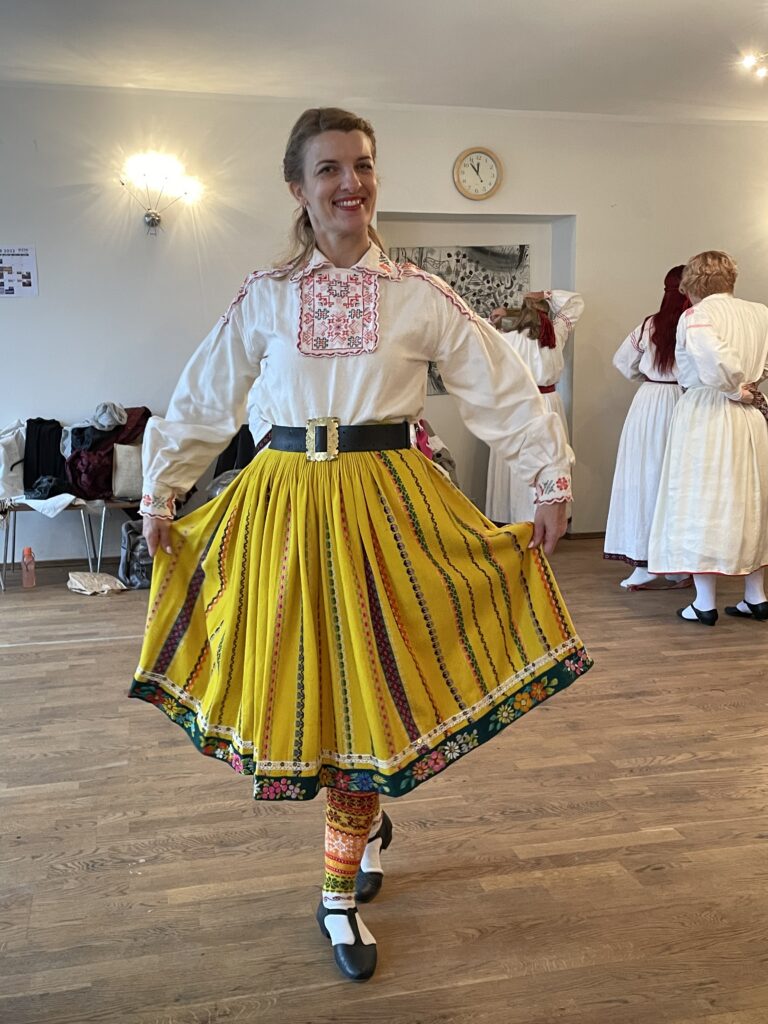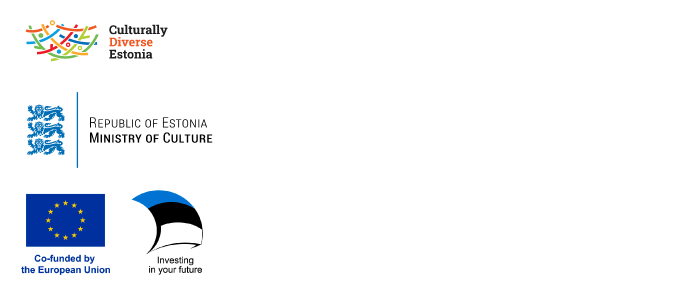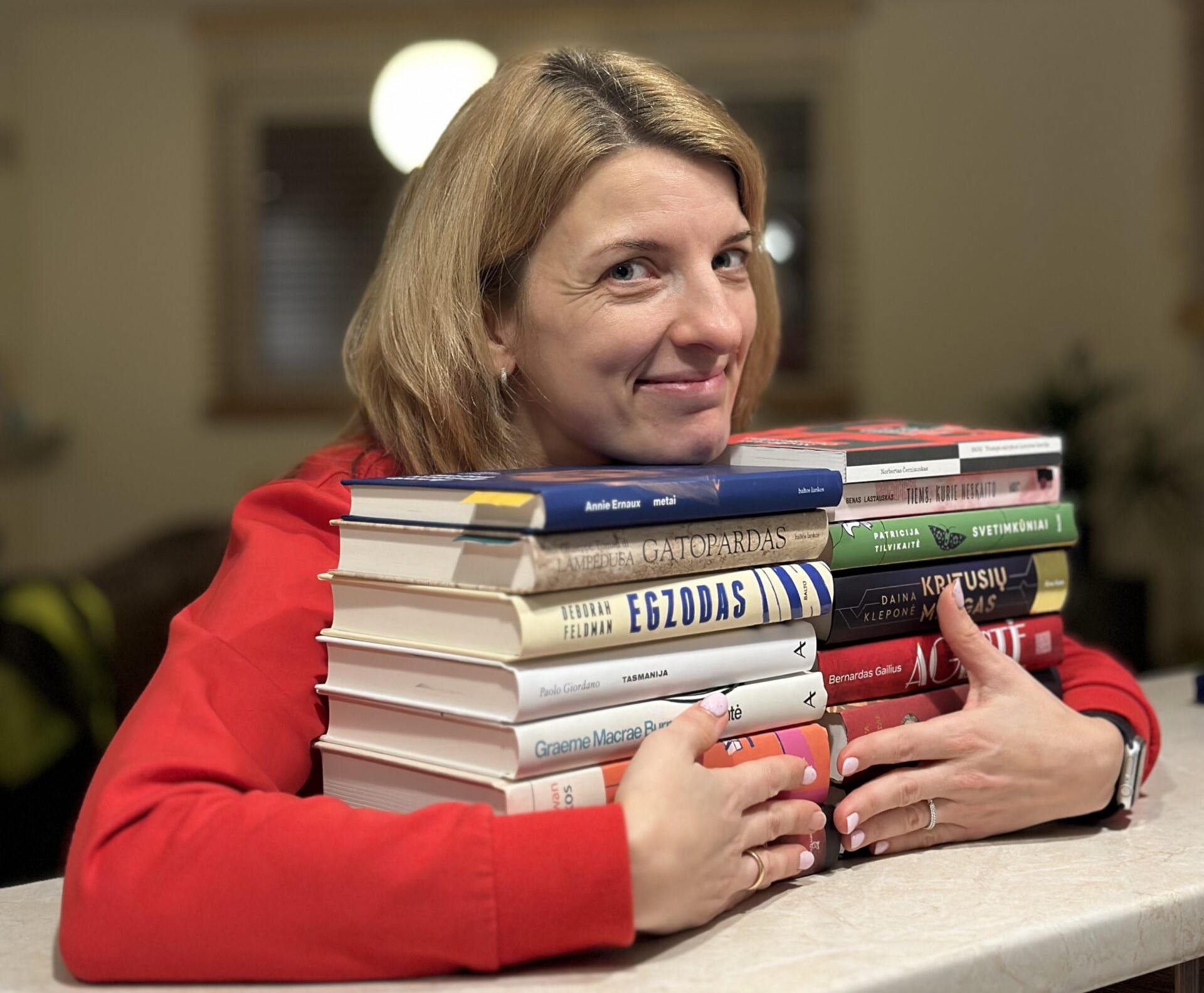Kristina Andla (45) was born in Klaipėda, Lithuania’s third-largest city – but it was in Estonia that she found love and home; with her Estonian husband, she has raised two bilingual children, built a successful career in finance, and become an active member of Estonia’s Lithuanian community.
Andla’s journey is a vivid testament to how courage, curiosity and respect for a new homeland can foster a profound sense of belonging and lasting friendships. Although this summer marks Kristina’s 19th year in Estonia, there are still experiences that the vibrant and energetic woman has yet to enjoy – and which she awaits with palpable excitement.
One of these long-anticipated events is this summer’s tantsupidu, the Estonian Dance Festival. “My son started folk dancing first. When I saw him perform at the last dance festival, it brought tears to my eyes. I thought: I want to do this too. I’ve now been doing folk dancing for five years,” Kristina recalls how folk dance entered her life. She has previously participated in the Song Festival as a choral singer.

Language as a sign of respect
Kristina met her Estonian husband in Vilnius. They married there, and their daughter was born in Lithuania. When the child was still small, they were faced with a question: “What next?” They decided to try life in Estonia. “Since my husband had lived in Lithuania for five years and spoke fluent Lithuanian, it seemed only fair to try living in his country too,” Kristina recalls. And so they sold their flat, packed their belongings, and set off into a new chapter.
Today, their family includes a 19-year-old daughter and a 14-year-old son. Both speak fluent Estonian and Lithuanian – a deliberate and important choice made by their parents to pass on their languages and cultures.
Kristina says she never formally studied Estonian – it came naturally through daily conversation, reading and watching TV. “If you respect the country that has welcomed you, you must at least speak the language on a conversational level,” she believes. Her passion for reading certainly helped, and her earlier knowledge of Finnish made learning Estonian easier.
She studied Finnish in Klaipėda when she enrolled in a Lithuanian philology course at university. As Finnish language learners had the chance to go on exchange to the University of Turku, the ambitious student naturally chose the Finnish stream. Finnish later became the couple’s first shared language. “Our love story began in Finnish,” Kristina says with a smile.
A career built on courage
Although Kristina trained as a philologist, life steered her towards the financial sector. Her knowledge of Finnish opened the door to a job as an administrator at a Finnish company’s branch in Vilnius. Over time, she was entrusted with bookkeeping duties – and discovered a love for numbers. She eventually earned a master’s degree in auditing, though she remained in accounting.
After moving to Estonia, Kristina received a surprising offer: a chief accountant position at the same company’s Estonian office. Despite not knowing Estonian laws, she boldly accepted. “It was youthful courage. I thought, I’ll learn – this kind of opportunity doesn’t come around every day, especially for a foreigner.”
She now has 24 years of experience in accounting, 18 of them in Estonia – including a decade at the state-owned postal company Omniva. This April, she started a new role in another state enterprise, an energy company Enefit, part of the Eesti Energia group.

A Lithuanian heart
Ties with her homeland remain deeply important to Kristina. “We often visit Lithuania, especially during holidays. The children know it’s their second home.” She emphasises the importance of preserving language and culture – not just for herself, but for her children.
Comparing Estonia and Lithuania, Kristina notes that Estonia has been more successful in digital innovation. “Lithuania is more conservative and slower to adopt changes. For example, online voting still doesn’t exist in Lithuania, even though there’s interest.” On the other hand, she praises the emotional openness of Lithuanians – something she feels Estonians could learn from: “When a Lithuanian loves, they love with all their heart – and hate with equal passion. We don’t tend to hide our emotions.”
She’s also noticed that Lithuanian media covers Estonia far more than the other way round. “Of course, Estonians are so far ahead of Lithuanians in many ways – that’s why what Estonia is doing is watched so closely.”
But in one area, Lithuania is clearly ahead – basketball. “Basketball games are a very emotional topic in our family. If Estonia and Lithuania play and Lithuania loses, divorce might be on the cards!” she jokes, true to her Lithuanian temperament. “I’m a huge basketball fan and always root for Lithuania. I’m glad we’re still ahead there.”

Bringing Lithuanian culture to Estonia
Kristina actively promotes Lithuanian culture in Estonia and is a board member of the Estonian Lithuanian Association. Each year, the Lithuanian Culture Day is held at the Estonian Open Air Museum, showcasing Lithuanian cuisine, music, and folk dance.
She eagerly shares recommendations with friends whenever a Lithuanian author is translated into Estonian. She highlights Tiina Kattel’s excellent translation of Peter the Great’s Empress by Lithuanian art historian Kristina Sabaliauskaitė. “It’s a complex novel, but the translation was wonderful and Estonians received it warmly,” she says with delight.
Kristina also takes an active part in Estonia’s cultural life. She attends concerts, exhibitions – most recently, she’s been a frequent visitor to Fotografiska Tallinn. Her favourite artists include Traffic, Terminaator and Ott Lepland. She names Indrek Hargla as her favourite writer – she’s read his entire Apothecary Melchior series from start to finish.
She admits, however, that Estonian films can be more difficult for her. “They’re often so sad. For instance, my daughter invited me to see Fränk, but my gut told me to skip it. Afterwards, she said it was just as well I didn’t come.”
Living between two cultures
In their home, both Estonian and Lithuanian traditions are observed. “We always spend Christmas in Lithuania at my parents’ house. On Christmas Eve, the table is set with 12 meatless dishes. Only on 25 December is meat allowed,” Kristina explains the contrast between Estonian and Lithuanian customs. “My husband hasn’t had black pudding on Christmas Eve in 20 years!” she says with a grin.
They also celebrate Easter in Lithuania – traditions such as egg-dyeing and church attendance are an integral part of their identity. And while Estonians mark Shrove Tuesday with pea soup and vastlakuklid (cream buns), their household begins the day with Lithuanian-style yeast pancakes, and only in the evening do they enjoy soup and buns.
“I’ve lived in Estonia so long that nothing surprises me anymore. But in the beginning, I was really struck by how quiet Estonians are. My husband is always silent. And then there’s me – I talk a lot and I’m a lot to handle!”

The article is part of the media programme “Estonia with many faces,” which highlights the richness and diversity of Estonian culture. The programme is supported by the Estonian Ministry of Culture and co-financed by the European Union.

